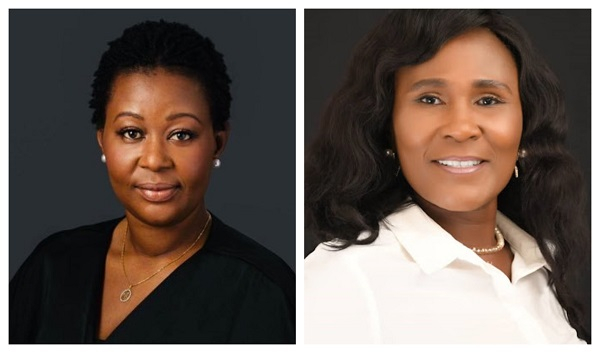IN THE LINE OF FIRE: Reporting for TheCable in a country at war with truth | TheCable
Over the years, TheCable’s reporting has held power to account, and the newsroom has had to endure a sustained campaign of suppression, including strategic lawsuits, physical intimidation, unlawful arrests, cyberattacks, targeted censorship, etc., all at great personal and institutional cost.
What follows is a chronicle of what it means to do journalism under pressure from armed men, aggrieved moneybags, governments allergic to scrutiny, unwilling public and other actors.
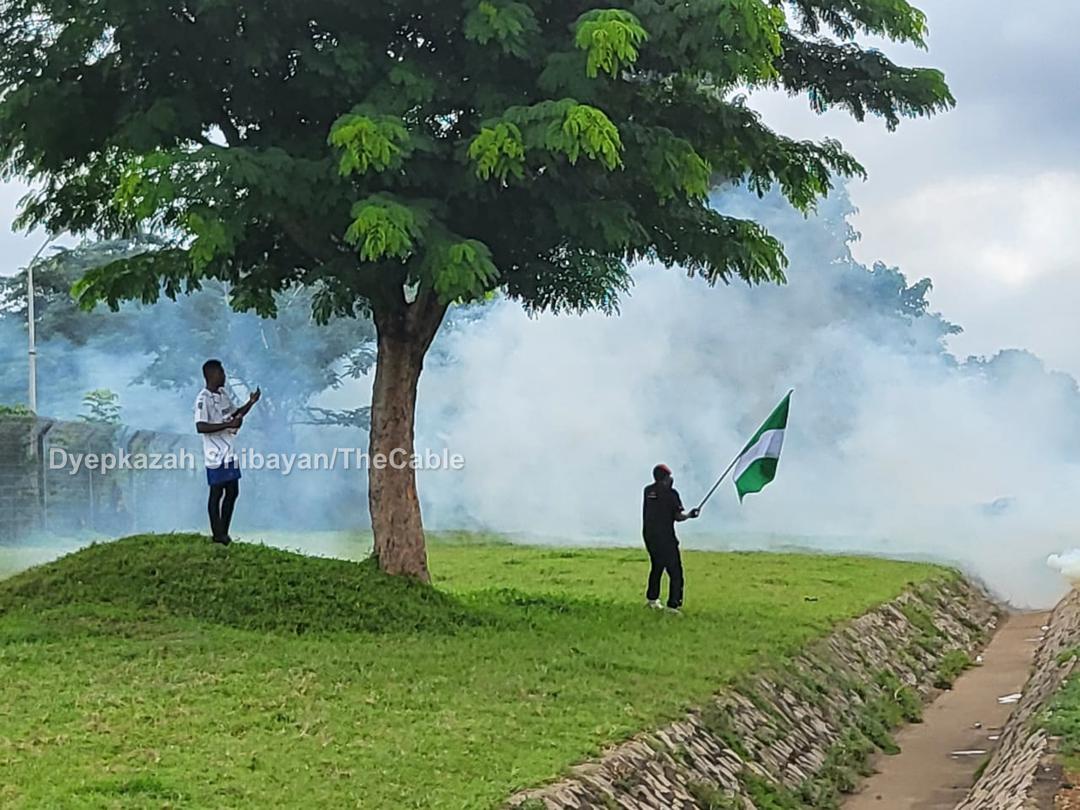
During the in Abuja, a TheCable reporter and two colleagues from Premium Times and People’s Gazette found themselves trapped between two bridges near the office of the head of the civil service of the federation (OHCSF) in the city’s central business district.
“Security operatives were doing everything to disperse the crowd, largely because that area is close to the route leading to Aso Rock, where the president resides,” TheCable journalist recounted.
“They began chasing people with tear gas, and we found ourselves in a tight spot. We were stuck in a jam-packed space between two bridges. On either side, there were bridges, and on top of one was a security van. It felt like we were caught in the middle.
“We were choking on the tear gas. I kept shouting, ‘Don’t shoot, we’re journalists’. But one officer just laughed and said, ‘We’ve been looking for you journalists, then he fired.”
The canister hit the reporter on the leg, and he quickly limped to safety.
“Emotionally and physically, it was a lot. Sadly, it’s not the first time I’ve witnessed or experienced a clampdown by security operatives while doing my job. It happens from time to time. But this was the worst I’ve faced so far,” he added.
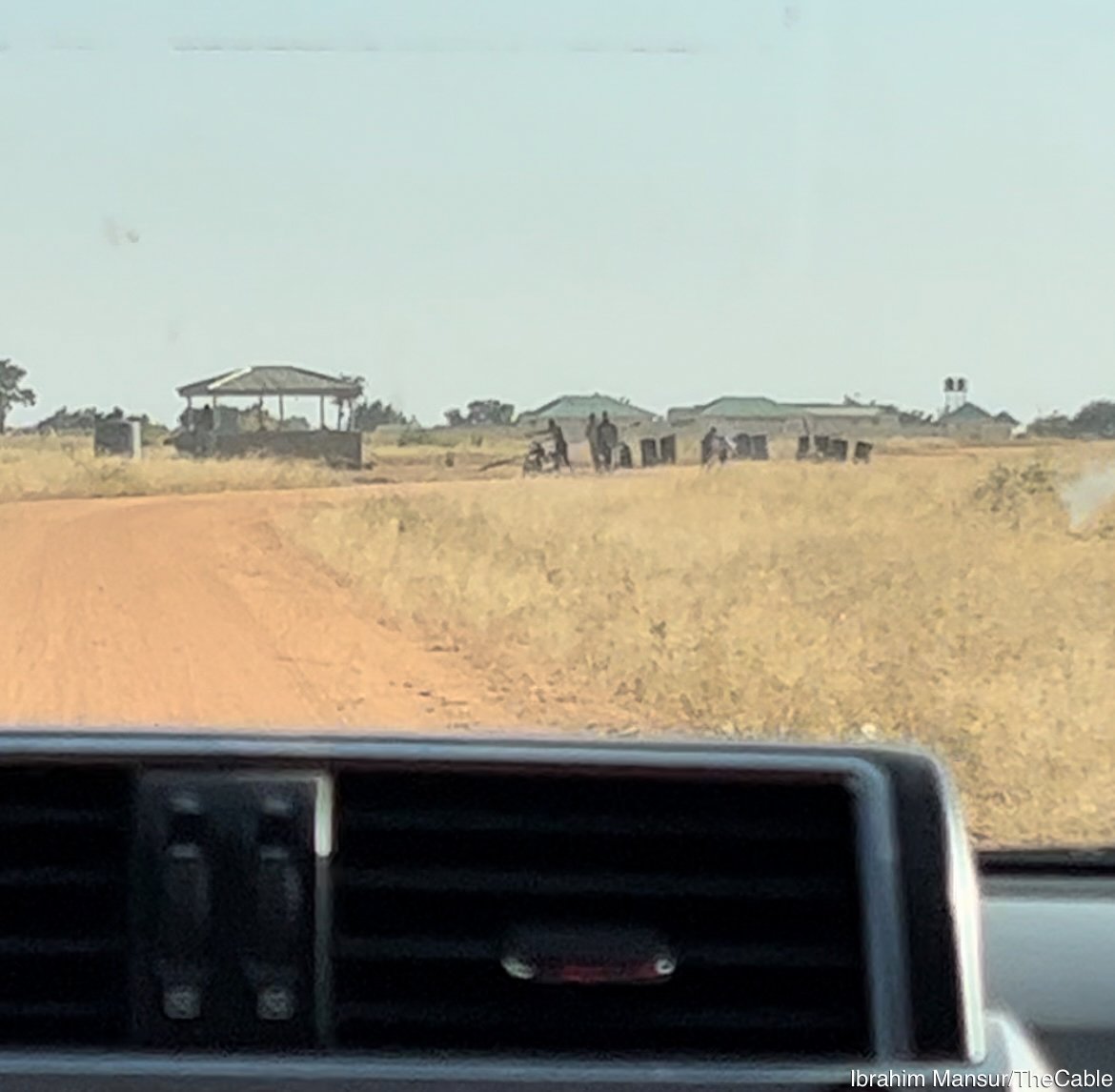
In December 2023, two TheCable reporters and a fixer were on an investigative undercover assignment in Gombe state.
Their assignment quickly took a terrifying turn when military officers at a border checkpoint stopped them. When asked what their mission was, they said that they were visiting relatives and had (truly) obtained a visiting permit from the community leader. The soldiers seemed convinced until an informant exposed them.
“When it started getting physical, we decided to reveal our identity. We brought out the letters from the community leader to show that we were journalists,” the female journalist said.
“But instead of calming down, they escalated it. One soldier said, ‘even the governor of this state can’t pass here’. Another raised an alarm, reporting a ‘security breach’. They made all of us come down from the vehicle. At one point, one of their bosses shouted, ‘waste them’. That was when I truly became afraid.
“They started recording us on video. They paraded us like criminals, asking what our real mission was, even though we told them we were journalists. They didn’t believe us.”
They were paraded, recorded, interrogated and eventually taken to a military base in Bauchi, where they were detained for hours, then forced to delete all footage initially captured.
“When we got there (Bauchi), it became a bigger issue. They called DSS, Navy, Army — all security branches. They realised we posed no threat, so they offered us plastic chairs and water. But we couldn’t leave because the matter had escalated to Abuja, and they were waiting for a directive to release us.
“We spent about two hours at the Bauchi military base. They threatened to destroy our camera and gadgets. Eventually, they told the photographer to delete all the photos.”
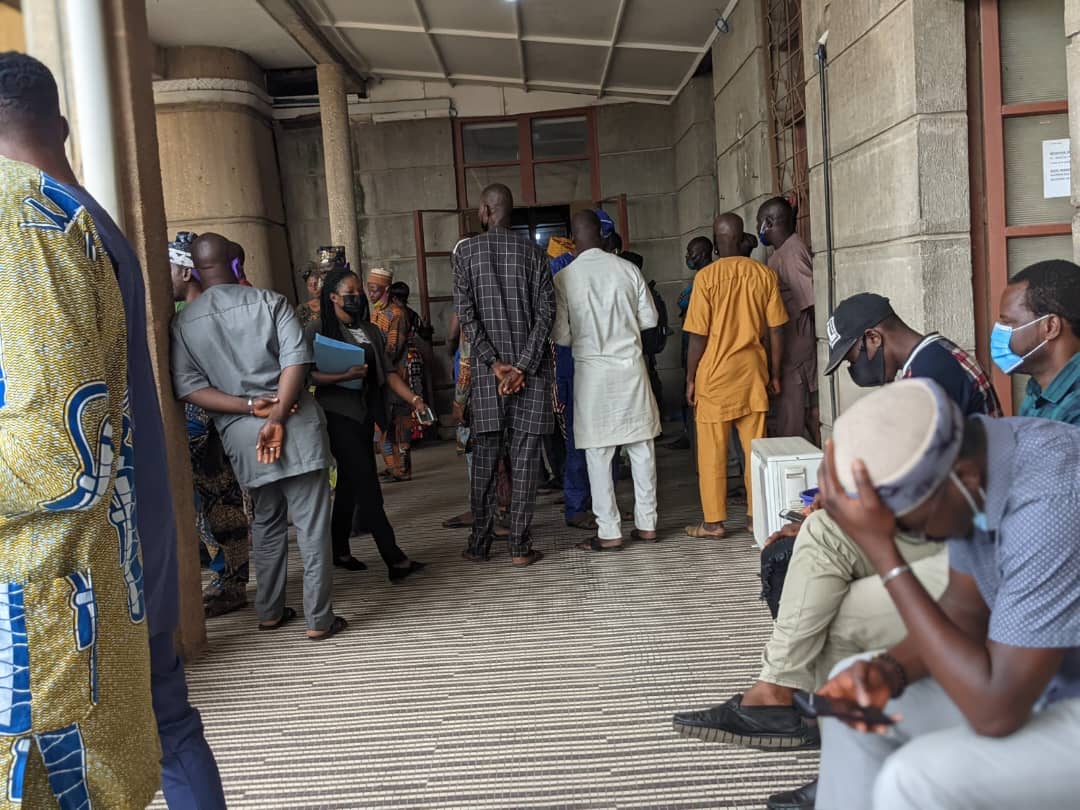
It happened in Cotonou, Benin Republic, during the trial of Sunday Igboho, a popular Yoruba Nation agitator. Fleeing the Nigerian government’s crackdown, Igboho had been arrested in Cotonou while attempting to travel to Germany, and TheCable was one of the few Nigerian media houses reporting live from the courtroom.
What eventually happened outside the courtroom almost ended in tragedy for the journalist covering the trial.
“After the court adjourned for the day, his fans took to the streets in demonstration. So I went live on TheCable’s Facebook account to bring the sights and sounds to our people back home,” the journalist said.
“A group of his supporters, whom I had been reporting all along, who were hailing me for letting the world know what was happening, started harassing me, seized my phone, beat me up, and threatened to kill me. I’m sure the video of how they ended my live session and harassed me is still on Facebook.”
The reporter was rescued by a stranger-cleric who overheard him say he was from a town they both shared some ties to, but the incident has done more than bruise his body; it rattled his sense of safety.
“It made me feel helpless for a long time, especially when exposed to the field. That, coupled with my experience with soldiers, impacted how often I want to be in the high-stakes part of the field,” he added.
“Real journalism in Nigeria is high risk, low reward. Sad that I am saying this, especially as someone who has benefited a lot from journalism.”

The protest, tagged #EndBadGovernance, continued the ethos of the #EndSARS movement. It took place at Gani Fawehinmi Park in Ojota, Lagos, a historically significant ground for civic resistance. But on that day in 2024, it also became a stage for violence against the press.
“While I was standing doing my diligence as a reporter with my ID on and my monopod, one of the suspected hired thugs approached me and asked why I was recording and slapped me on my face,” the journalist recounted.
“The suspected thugs felt threatened by the conversation I was having. Maybe they were afraid that it would put their face out there in the public for their actions.”
The attackers were suspected to be road transport workers from the nearby Ojota motor park, hired to disrupt the protest and intimidate those documenting it.
“It has given me a level of PTSD anytime I visit that area. I still sense the shock of ‘anything can happen’ anytime I see protesters gather at a location. However, I have come to resolve that the work comes with its own dangers, too,” he added.
These are but a few instances of arrests, harassment and intimidation faced by TheCable journalists.
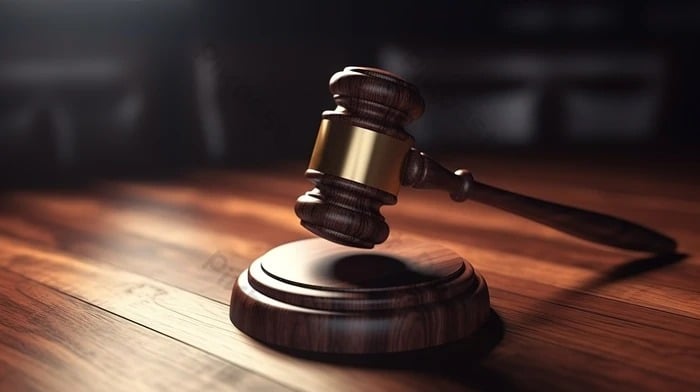
While some threats come with uniforms and guns, others come dressed in black robes and filed under the title of Strategic Lawsuits Against Public Participation (SLAPPs).
SLAPPs are legal actions, often defamation or libel suits, filed by influential individuals or entities not necessarily to win, but to intimidate, drain resources, and silence critics who speak on matters of public interest.
They are typically used against journalists, activists, or whistleblowers. They are designed to discourage further scrutiny by tying up defendants in costly, time-consuming litigation, regardless of the case’s legal merit.
Since 2015, TheCable has been named in many high-stakes SLAPP suits, each demanding outrageous sums — N3 billion, N5 billion, N10 billion — for what were, in every case, legitimate, evidence-backed stories.
In 2015, Precious Gbeneol sued TheCable and other defendants in suit FCT/HC/CV/3072/2015. The claim centred on an article it published which Gbeneol alleged was libellous and defamatory.
Seeking N3 billion in damages, she argued the publication falsely linked her to a contract for 300 solar street lights in Nigeria’s south-east, despite no privity of contract. The Cable’s defence hinged on jurisdiction and procedural flaws, successfully arguing that the alleged libel wasn’t proven to have been read in Abuja, leading to the case being struck out and dismissed.
A parallel case, CV/2879/2015, saw Tamunoimama Jamabo target the same defendants alongside TheCable over similar publications, claiming N2 billion in damages. Jamabo contested links to a contract awarded by the Millennium Development Goals (MDG) office. TheCable leaned on qualified privilege, jurisdiction, and legal non-compliance, and the suit was ultimately abandoned by the claimant’s counsel.
In another, Matrix Energy Ltd vs TheCable, still ongoing, the plaintiffs linked to the president’s economic advisory council filed a N10 billion suit over a report exposing questionable fuel imports from Russia and Malta. TheCable’s legal team view it as a textbook SLAPP: high-profile, high-value, and high-pressure.
These are but a few cases.
Kolapo Olapoju, editor of TheCable, said SLAPPs are difficult to totally steer clear of, but precautions help.
“You can’t entirely avoid SLAPPs no matter what you do. But you can limit your exposure,” he said.
“At TheCable, some of the steps we take include having a close rapport with our lawyers. We consult them whenever we’re about to publish tricky stories. But even when you’re protected, SLAPPs can still come your way and waste your time and resources in court. But it’s important to ensure you’re protected enough.
“Secondly, we educate our journalists constantly about libel, defamation, and character assassination. This helps them become more conscious of how they approach sensitive stories. Our editors, who serve as the gatekeepers, are also trained to be more proactive in spotting legal red flags that can’t be defended.
“We also monitor proposed changes in legislation. Sometimes, new laws are introduced specifically to target critical journalism. Staying abreast of these developments is key to staying ahead.”
Olapoju noted that pressure often follows hard-hitting investigations, but TheCable maintains a firm editorial stance.
“We’ve received serious pressure from individuals and entities upset by our investigative stories. Some want us to take down stories they find too revealing. But we have a strong editorial policy: we don’t take stories down unless there’s a factual inaccuracy — and in such cases, we publicly acknowledge and correct it,” he said.
“This resistance comes at a cost. Some organisations, both private and public, stop doing business with you. That’s indirect censorship — a form of punishment for not playing along. You lose opportunities because you refuse to bend your editorial values.”
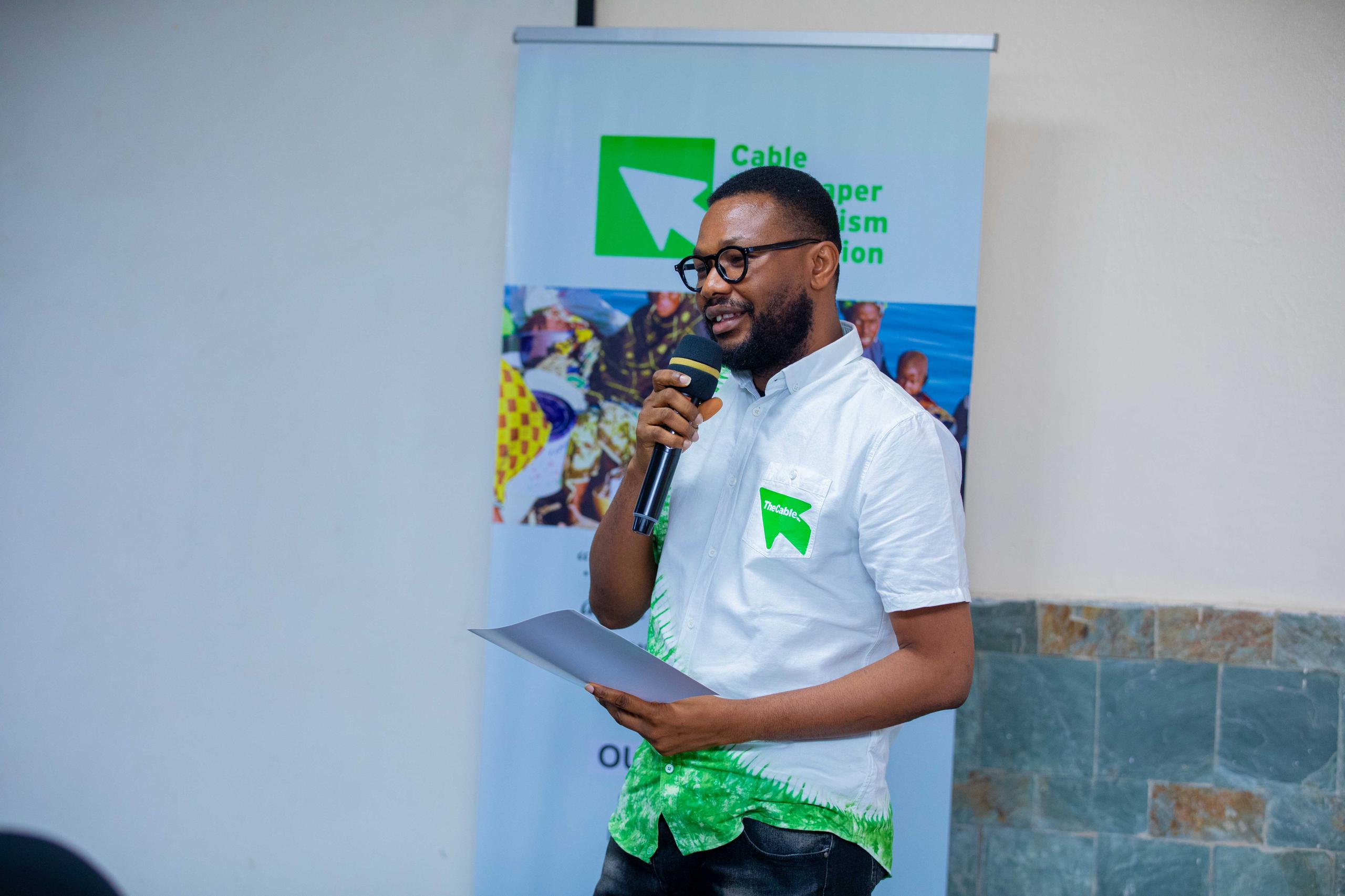
What sets TheCable apart is that it tells hard stories.
Every editorial decision goes through a public interest lens: Does this story serve the people? Does it hold power to account? Does it bear witness where silence once lived?
More importantly, TheCable is a place where journalists are protected emotionally, legally, and institutionally as much as possible.
“Attacks and threats help us to anticipate future risks and prepare better,” Olapoju said.
“For physical safety, we provide our journalists with bulletproof vests and helmets when covering high-risk events. We also provide pepper spray to help them defend themselves if attacked.
“For online attacks and cyberbullying, we prepare our reporters on how to handle harassment. We also have clear internal policies guiding journalists on maintaining decorum online, which helps reduce vulnerability.
“In some cases, when a journalist is traumatised — say, experiencing PTSD — we offer them time off or reassignments away from high-tension zones. We’ve also offered mental health support and ensured reporters don’t return to the field until they feel ready.”
Even in situations involving external contributors, Olapoju said TheCable never abandoned them.
“We’ve intervened in several cases and ensured issues are resolved. We don’t abandon them,” he said.
Olapoju added that TheCable will continue to defend journalism for the common good because the truth must outlive fear.
In the face of abuse, he noted that silence is complicity and that journalism, at its purest, is an act of defiance against power without accountability, against systems designed to disappear the vulnerable, against the slow rot of national memory.





